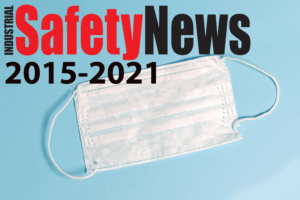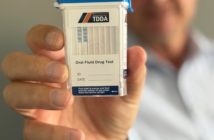Finance Minister Grant Robertson announced last week a $12.1 billion package designed to support New Zealanders from the global impact of COVID-19, but what does the package mean for you, your business and your employees?

Wage subsidy scheme
Wage subsidies will be available for all employers that are significantly impacted by COVID-19. This applies to all sectors and all regions and includes the self-employed and sole traders.
To qualify:
- your business must be registered and operating in New Zealand (see below on what this means);
- your employees must be legally working in New Zealand;
- the business must have suffered (or be projected to suffer) a 30% decline in revenue for any month between January 2020 and June 2020 compared to the same month last year (or a reasonably equivalent month for a business operating for less than a year). That decline must be related to COVID-19. Applications can be made on the basis of forecast revenue loss within the period of the scheme;
- you must make best endeavours to continue to employ the affected employees at a minimum of 80% of their income for the duration of the subsidy period (the equivalent of 4 out for 5 days of the week);
- you must have taken active steps to mitigate the impact of COVID-19 (this could include, for example, activating your business continuity plan and seeking advice and support from your bank, financial advisor or relevant industry association).
A business “registered and operating in New Zealand” is described on the Work and Income New Zealand website as a business:
- registered with the New Zealand Companies Office;
- physically located in New Zealand; and
- the employees of which legally work in New Zealand.
Our understanding however is that the scheme is not restricted to “companies” only and will be open to any entity with a New Zealand Business Number (NZBN), including other body corporates such as New Zealand limited partnerships. You will need to provide your NZBN when making the application.
Sole-traders are not required to be registered on the New Zealand Companies Office but must have:
- a personal IRD number for paying income tax and GST;
- government licences and permits for their business needs; and
- qualifications or registrations for their trade or profession.
Sole traders must still meet the requirements to be physically located in New Zealand
Further information on the eligibility criteria (including how to determine the decline in revenue) can be found here.
If eligible, employers will be paid:
- $585.80 per week per full-time employee (20 hours or more); or
- $350 per week per part-time employee (less than 20 hours)
The payment will be made as a lump sum for a period covering 12 weeks. This means that employers will receive a payment of $7,029.60 for a full time employee and $4,200 for a part time employee up to a maximum of $150,000. Businesses can only get this subsidy once.
Applications opened yesterday, 17 March 2020 and can be made for the next 12 weeks through the Work and Income website.
The subsidy is being administered under a high-trust model. Employers will be required to sign a declaration and undertakings but will not be asked for verification before the subsidy is approved. The Ministry of Social Development (MSD) will however be able to check applications and verify information at a later date. Where false or misleading information has been provided, employers can be investigated for fraud which may result in further action being taken (including being required to repay money).
COVID-19 leave and self-isolation support
This will provide support (through employers/to sole traders and the self-employed) for those people who are unable to work because they:
- need to self-isolate and cannot work from home (the self-isolation must be in line with Ministry of Health Guidelines and employees must have registered as needing to self-isolate with Healthline);
- are sick with COVID-19; or
- are caring for dependents in either of these situations.
Employers will be expected to meet all of their sick leave and other employment expectations. However employees are not required to have used any or all of their paid leave entitlements before they can receive this payment.
Key parameters:
- Eligibility is open to all employees legally working in New Zealand (through their employers), the self-employed and contractors (but not for those who can work from home).
- Those who leave New Zealand to travel overseas from 16 March 2020 will not be eligible for this payment for self-isolation on their return.
- The entitlement period is 14 days for those self-isolating, and for the entire period of sickness for those who contract COVID-19 (although employers must apply every 14 days in such cases).
- Employers may apply on an ‘as needed’ basis to cover people who are required to self-isolate more than once.
The payments will be equal to the rate of the wage subsidy scheme (i.e. $585.80 per week for full time and $350 per week for part time workers). Employers will have to sign a declaration confirming they meet the criteria for receiving this funding. Further information on the application process can be found here.
Employers will apply for the leave on behalf of any employee who is self-isolating or sick. Payments can be backdated to 17 March 2020. The payment is made by MSD to employers, who will then be required to pass it onto the affected employee. MSD will pay on a fortnightly basis once it receives an application.
The scheme will be in place for an initial 8 week period, and will be reassessed at that time.
Further measures:
In addition to the wage subsidy and leave payment schemes, the package contains other measures which will assist businesses. These include:
- Provisional tax for small businesses – The threshold for provisional tax will increase from $2,500 to $5,000 from the 2020-21 tax year (commencing 1 April 2020).
- Depreciation deductions for commercial and industrial buildings – Depreciation deductions for commercial and industrial buildings have been reinstated at a 2% diminishing value applying for the 2020-21 tax year.
- Waiving interest on some late payments – The Commissioner of Inland Revenue will be a given a time-limited discretion to remit interest on late payments if a tax-payer’s ability to make a tax payment on time as been significantly adversely affected by the COVID-19 outbreak. This will apply for all tax payments due on or after 14 February 2020.
- Immediate deductions for low value assets – The threshold for writing off low value assets has been temporarily increased from $500 to $5,000 for one year. This will revert to $1,000 in the longer term.
- Income Support:
– A $25 across the board permanent increase to main benefits, from 1 April 2020;
– Doubling the Winter Energy Payment in 2020 (this change is temporary);
– From 1 July 2020, working families with children who are not receiving a main benefit and have some level of employment income each week will no longer have to satisfy the hours test to receive the In Work Tax Credit.
Larger or complex businesses
The Minister noted that larger or complex businesses may fall outside the scope of the proposed business and employee support package (including working capital support). Officials have been asked to develop options to support larger businesses that have been materially impacted by COVID-19 on a case-by-case basis where other avenues of support are not available and the businesses are commercially viable over the longer-term.
The Minister also noted that the government is working with Banks to understand the impact of COVID-19 on access to working capital for businesses and encourage any business facing issues to talk with their bank for advice and support.
The Minister made it clear that the ultimate recovery package will go beyond the measures announced. This year’s Budget is intended to be the second phase of the broader recovery package and we can expect further important announcements then.



